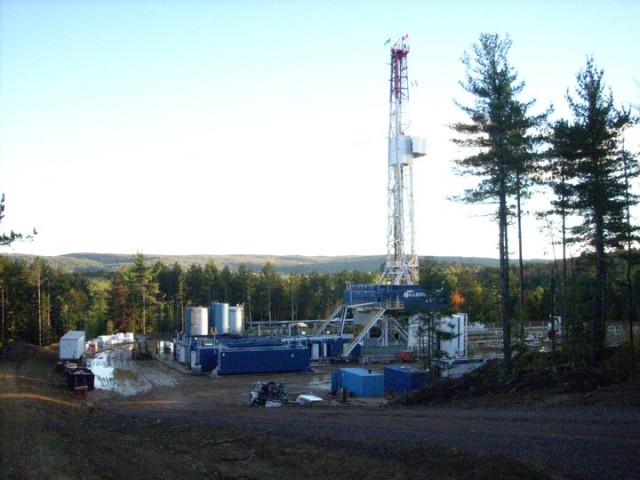For immediate Release
Scientists find risks to water most significant threat from fracking
Fredericton – Today the much anticipated Environment Canada study commissioned to the Council of Canadian Academies was released. The “Expert Panel on Harnessing Science & Technology to Understand the Environmental Impacts of Shale Gas Extraction” of 14 scientists has produced a good summary of bad news: water contamination is the greatest threat posed by the shale gas extraction method known as fracking.
Conservation Council identified water (potential water contamination, wastewater disposal and use of water) as its main concern in its first publication on shale gas, “Fracking for Shale gas: what you need to know”, in 2010.
“This report is welcomed validation of the concerns that many communities, community groups, unions, medical professionals, churches and others have been voicing but brushed off as misinformed by decision makers” says Stephanie Merrill, Freshwater Program Director for CCNB, and spokeswoman on the shale gas issue. “This report is another in the pile we can point to validate our concerns that we are moving forward with an industry and its impacts that we don’t know enough about, says Merrill.
“In speaking with many communities and citizens about fracking, a common appreciation, concern and will for the protection of our precious water resources has been the galvanizing factor”, she continues. “And clearly that water is at risk”.
Beyond the consensus among the experts on the panel, that water contamination from leakage around improperly sealed well bores and migration through geological fractures, poses the largest risk from the industry, the report also highlights that:
- Increased greenhouse gas emissions, seismic activity, socioeconomic disruption and poor scientific monitoring pose a problem for shale gas extraction;
- There is a lack of knowledge of health and social effects from development; however minimally, a Health Impact Assessment framework is required at the provincial level to determine short and long term impacts;
- There has been no comprehensive investment in the research and monitoring of environmental impacts;
- Of data that is available it mostly is not public; and
- The if shale boom takes investment away from renewable power, it could make climate change situation worse.
-30-
Media Contact: Stephanie Merrill, Director Freshwater Program, 458.8747; 261.8317, water@conservationcouncil.ca

